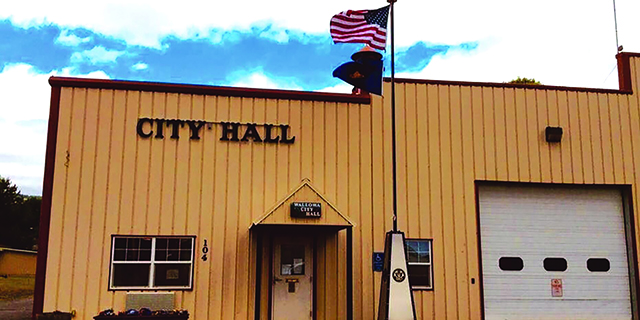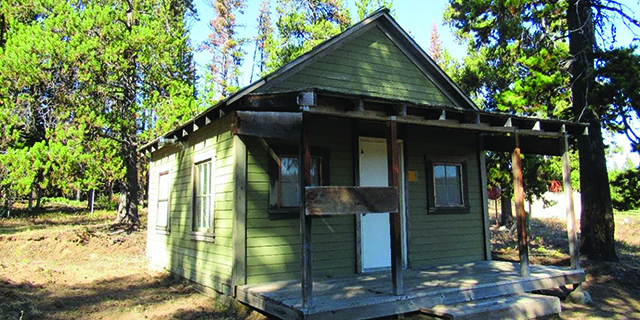46 years on Main Street
Published 10:39 am Tuesday, July 18, 2017

- No headline.
In July of 1971, just before Chief Joseph Days, I pulled into the Mountain View Motel in my new used 1967 VW bug and thought about my first day on my new job at the Wallowa County Extension office. I’d flown from Washington, D.C., to Portland, spent a week learning about Oregon State University’s ag and community development programs, bought the bug and headed east.
They forgot to tell me how extension agents –– or anyone else –– dressed in Wallowa County, so on that first Monday in mid-July, I put on a dress shirt and tie, slacks and sport coat and drove into Enterprise and parked in front of the courthouse. The extension office was on the second floor of the courthouse, where the D.A. now sits.
Trending
Extension secretary Ruth Makin welcomed me and told me that County Agent Chuck Gavin would be in shortly –– he was probably across the street at Homan’s Drug Store having coffee. I stood in what would become my new office and looked down as people slowly filtered into the courthouse. There were no sport coats, so I took mine off and hung it in the closet. The tie followed, and I rolled up my sleeves.
Chuck Gavin clamored up the stairs and into his office, sat back in his chair, threw his legs and boots up on the desk, and asked me in. There must have been a quick handshake, and then, as he scratched his ear on the side of his face that had been left partially paralyzed as a result of one of his WW II Purple Hearts, he began peppering me with questions.
“Where are you from?”
“Well, I came here from Washington D.C. and before that the Peace Corps in Turkey and…”
“Where’d you grow up?”
“Well, I went to high school and college in California, and …”
Trending
“Where’d you start out?”
“Minnesota, I was born there and we moved to California when I was 10 and …”
“How big a place?”
“Must have been about 1,500 people in Fosston, Minn. …”
“You might make it here.”
And then Rose Reynolds at Homan’s made us some tuna salad sandwiches, and Keith Zobell, the Chesnimnus District Ranger, picked us up for a county tour. We drove highways and back roads, went to Imnaha and Flora, Buckhorn and Billy Meadows, where we looked in a small cabin built by CCC workers in the ‘30s and saw wooden water troughs built at the same time that were now being replaced with steel tanks.
I don’t remember who all we met, but it was ranchers, farmers, loggers and foresters. And 10 or 12 hours later we were back in Enterprise, and I crawled into the VW with socks full of wheat chaff and stickers, pockets full of dust, and the notion that I had arrived at a special place with terrane-trees, rivers, canyon breaks and white-capped mountains –– that was new to me and as old as forever.
And history too. My knowledge of the Nez Perce began right there. “Imnaha,” “Wallowa,” “Chesnimnus,” “Chief Joseph” and other places and names rattled around. It didn’t take long to figure that the Nez Perce War was less than a 100 years from us, and that a couple of the old timers –– Ben Weathers for one –– had probably been here to shake the hand of Joseph when he came in 1899 and tried to buy back some of his land.
I remember hearing that “you weren’t a native in Wallowa County until you’d been here four generations.” But I had been in Turkey, where native meant language and culture and dirt, and spent a year in the American East, where white people bragged on the Mayflower. Four generations didn’t seem like much, and I quietly answered –– trying not to sound too smartish –– that I imagined the only true natives here were Indians.
Forty-six years later I’d stand by that statement, but with a much broader and richer understanding of the Indian people who once lived here and everywhere across this country, and of the waves of immigration and movements of people that get us to the globe we share now.
Rootedness in place is a luxury that few people have. I think of millions of displaced people in and from Syria, Iraq, Afghanistan, Vietnam and Cambodia, among others. But also of restless Americans, shuffling from state to state, north to south, job to job.
Could it be that the rants about immigrants are really loss of and fears of losing our own frail tethers to the places we live and work? And that wherever we go or live, we can’t find or be the Chucks and Keiths who welcomed me to this place 46 years ago? And that we fear and to not listen to the ancient ones –– the Indians –– who really know the geography and old habits of this and any place?
Rich Wandschneider lives in Joseph and writes a monthly column for the Chieftain.









